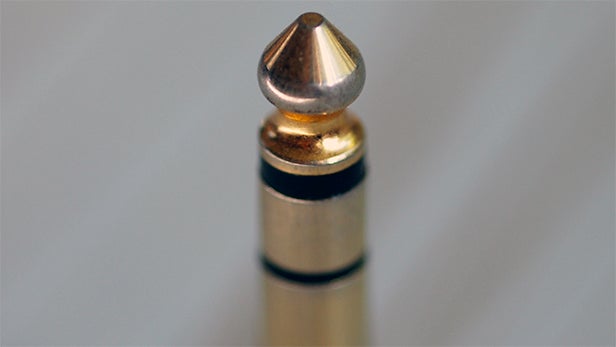Intel wants to kill the headphone jack, backs USB-C

Intel wants to kill off the headphone jack for good, and reckons USB-C should rise in its place.
That’s according to a new proposal that Intel revealed at this months’ IDF Shenzhen developer forum, suggesting the industry “remove[s] the 3.5mm audio jack from audio sources”, as reported by Anandtech.
Audio ports are one of the few remaining analogue ports in modern technology. The 3.5mm jack serves just one single purpose, and that’s not good enough in 2016.
By comparison, USB-C is a digital connection, and is capable of performing multiple functions at once.
Headphones connected via USB-C could, for instance, play music and measure your heart-rate at the same time, feeding that data directly to your phone.
That’s just not possible with the aging 3.5mm jack, a legacy port from the 1960s.
It’s long been rumoured that Apple is already planning to ditch the headphone jack on the iPhone 7. And China’s LeEco (formerly LeTV) has already done just that with its latest smartphone.
Related: Best Android Smartphones 2016
The other advantage of USB-C is that it can also replace your Micro USB port for device charging. This means you need less ports per device. It’s also reversible, just like Apple’s Lightning connector.
Unfortunately, smartphone manufacturers have yet to adopt the technology en masse. However, that uptake is expected to grow quickly as more accessories are built to support the standard.
(apester:56607d4641f2d0122b07cffa)
Would you be sad to see the headphone jack go? And do you own a device with a USB-C connection? Let us know in the comments.


